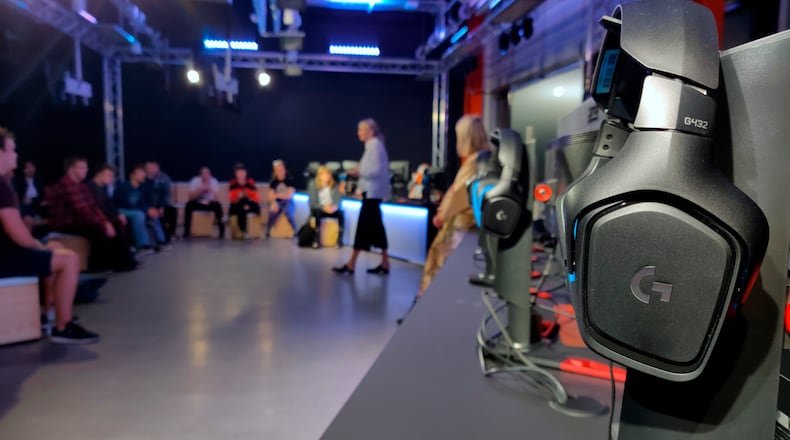The GHSA esports program has grown to include nearly 210 schools and more than 3,000 participants since its introduction as a sanctioned GHSA sport in the fall of 2018.
There have been 35 GHSA esports championships awarded, and participation is expanding as schools create new esports programs and well-established schools add new teams.
Different games have been added and removed during the past six seasons. The current lineup includes NBA 2k24, League of Legends, Rocket League, Hearthstone, Madden NFL 24, Super Smash Bros. Ultimate, Splatoon 3, Mario Kart 8 Deluxe and the latest addition – online chess.
The online world constantly is changing, and a progressive GHSA is doing the best it can to keep up with the times and monitor demand for competition in various games each season. Coupled with the logistics of running a team and weekly competition or state championship games at West Georgia each season, there’s a lot to focus on.
Two important figures in the world of GHSA esports were asked to give their outlook for the sport and predict where it might be in the next three to five years.
Ashley Hodge, a GHSA esports SuperCoach, has helped build esports programs at Colquitt County and Dodge County. She understands that the growth of high school esports goes against the taboo mentality that society tends to have when talking about video games. She also has seen different overlaps of cultures and friend groups with the addition of a vast variety of games.
Tanya Anderson has been with the GHSA since 1995 and has overseen the esports competition since its inception. She said it’s great to see growth, but there are logistical challenges when running the championships.
Tanya Anderson, GHSA esports coordinator
“It has grown. It grew fast in the beginning, and it continues to grow with the number of participants. In other words, the numbers of schools are growing, but those schools are adding more and more players and even some have multiple teams in one sport. And because we are adding games and – because we like to hold our semifinals and finals in person – the more games we add, the tougher it gets at West Georgia during the state championships. And there has not been another venue like that which can accommodate like they can. They have all of the monitors and chairs and desks and everything in their basketball arena. Another big thing is that PlayVS offered their platform to schools for free, so they can field teams completely for free as long as they have the equipment. And PlayVS also helped some programs with that as well. Most programs hold fundraising events just like any other sport or activity, and I don’t feel like any program is being slighted in any way when trying to build or run a program.”
Ashley Hodge, GHSA esports coach, Dodge County
“The partnership the GHSA has with PlayVS, which recently expanded to Canada, has helped high school esports to explode in a way that I knew was possible … but didn’t really think it would happen because of how society views video games. The recent addition we have added this fall is chess, and it is run by chess.com, so anybody can set up an account and play there. Esports are also expanding into a bunch of different demographics because the chess players wouldn’t probably mingle with the football players on a daily basis. But now I have football players coming in and playing Madden next to the chess players, and they’d normally, really, not cross too many paths. But it’s a crazy family community. The next path is to bring in some more popular games these kids are playing, like Fortnite and – not necessarily Call of Duty. I do not have a problem with first-person shooter-type games, and the GHSA is against that. But at the next level, a lot of the games are first-person shooters, and that’s something that if there’s a problem with an esports player dealing with first-persons shooter games impacting how they act, a coach should be able to spot that issue and help with it.”
About the Author
Keep Reading
The Latest
Featured


